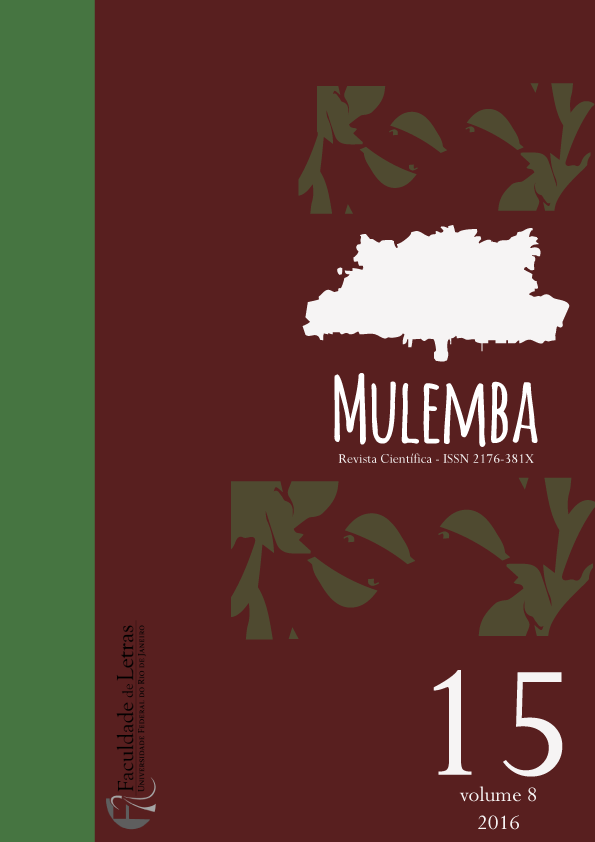Oraliture in Portuguese language classes as a space for intercultural dialogues
DOI:
https://doi.org/10.35520/mulemba.2016.v8n15a5334Keywords:
oraliture, literature, oral tradition, racismAbstract
This paper is an attempt to discuss “oraliture” as an effective way to instigate intercultural dialogues between Brazil and Mozambique. Such considerations are linked to the reinvention of orality as an element traditionally intrinsic to the African cultures. Our reflections were prompted from the reading of oral tradition tales, originating in the two countries above, involving high school students in a public school, as the elementary procedure for compliance with Law 10,639 / 2003, which calls for the teaching of African and Afro-Brazilian culture in basic education. The tales “Porque o negro é preto” and “As mãos dos pretos” deal with the same issue: racism. Although it seems to be na old discussion, this issue still provokes controversial positions, as noted in our class of second year of high school. Our considerations are anchored in Leite (2012), Freitas, (2010), Nunes (2009), Abdallah-Preitceille (2002), Munanga (2005), among others that support our study. This action research is of qualitative and quantitative nature, for it seeks to identify factors that determine behaviors, most likely underlying the lives of students as an important part of today's society. The results show that in this public school the Federal Law is not met, reflecting that there is still a need to discuss the African literature or culture, not basic education.
Downloads
Published
Issue
Section
License
Authors who publish with this journal agree to the following terms:
- Authors retain copyright and grant the journal right of first publication with the work simultaneously licensed under a Creative Commons Attribution License that allows others to share the work with an acknowledgement of the work's authorship and initial publication in this journal.
- Authors are able to enter into separate, additional contractual arrangements for the non-exclusive distribution of the journal's published version of the work (e.g., post it to an institutional repository or publish it in a book), with an acknowledgement of its initial publication in this journal.
- Authors are permitted and encouraged to post their work online (e.g., in institutional repositories or on their website) prior to and during the submission process, as it can lead to productive exchanges, as well as earlier and greater citation of published work (See The Effect of Open Access).

